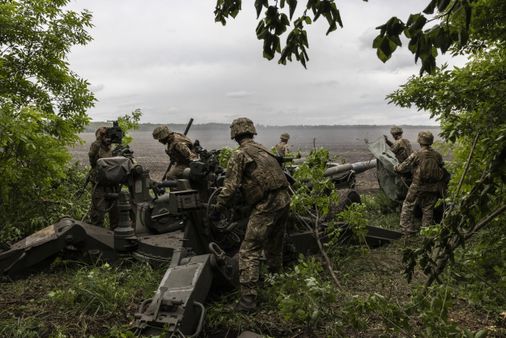The ouster of several top officials from Ukraine’s government Tuesday following accusations of government corruption has lent those concerns a fresh urgency. Although US and European officials say there is no evidence that aid to Ukraine was stolen, even the perception of fraud would threaten political support for continued wartime assistance and for the postwar reconstruction effort that Western officials envision.
WASHINGTON — Since the start of the war in Ukraine, US officials have watched with some anxiety as billions of US dollars flowed into the country, well aware of Kyiv’s history of political corruption and fearing that aid might be siphoned off for personal gain.
Advertisement
The allegations included reports that Ukraine’s military had agreed to pay inflated prices for food meant for its troops. A deputy prosecutor general was fired for reportedly borrowing an oligarch’s Mercedes to drive to Spain for a vacation, and a presidential aide accused of commandeering a Chevrolet Tahoe donated to help with evacuations was forced out.
Rather than betray alarm, however, US officials insist the drama shows that President Volodymyr Zelensky is committed to fighting corruption.
The shake-up in Kyiv “sends a very strong signal to others who would try to rip off this war effort and is important for the future of Ukraine,” Victoria Nuland, the undersecretary of state for political affairs, testified Thursday during a Senate Foreign Relations Committee hearing on Ukraine.
“We have been very clear that we need to see, as they prosecute this war, the anti-corruption steps, including good corporate governance and judicial measures, move forward,” she added.
Nuland was responding to a question from Senator Jeff Merkley, a Democrat from Oregon, who said he was worried that corruption in Ukraine’s government could be “a kind of cancer eating away at support that they need from everyone in the world.”
Advertisement
In an episode whose details remain murky, Zelensky in July fired his top prosecutor, intelligence chief, and other senior officials for reasons he said were related to treasonous ties with Russia. But to the relief of Western and Ukrainian leaders, corruption has otherwise not been a significant factor in the war.
Zelensky is a former comedian who campaigned as a political outsider capable of stamping out the culture of corruption that has gripped his country since its independence from the Soviet Union. In his inaugural address in May 2019, he said Ukrainian politicians had created “a country of opportunities — the opportunities to bribe, steal, and pluck the resources.”
A 2021 “Corruption Perception Index” by the watchdog group Transparency International that ranked 180 countries for their perceived level of public-sector corruption, with No. 1 being the least apparently corrupt, put Ukraine at No. 122. Concern about corruption was second only to the Russian threat in the Biden administration’s prewar policy toward Kyiv. In 2015, when he was vice president, Joe Biden pleaded with Ukraine’s parliament to stamp out “the pervasive poison of cronyism, corruption, and kleptocracy.”
While attention has focused on the possible theft or diversion of American weapons, US officials take comfort in the fact that Ukraine has an urgent incentive to throw every available armament against the invading Russians.
In addition, the United States requires Ukrainian officials to log all military equipment they receive, track its progress to the front lines, and report ammunition expenditure and any damage or destruction of weapons, a senior defense official said last fall. Defense Department officials have trained Ukrainian troops in methods to help keep track of American arms, and US personnel conduct inspections inside the country where security conditions allow.
Advertisement
Celeste A. Wallander, the assistant secretary of defense for international security affairs, said at Thursday’s hearing that the administration “has not seen credible evidence of any diversion of US-provided weapons outside of Ukraine.” She added that the Pentagon was using oversight “mechanisms that go above and beyond our standard practices.”
But US officials fear that humanitarian aid, and especially direct financial aid, is more at risk of embezzlement or theft.
The largest type of cash infusion into Ukraine’s government from the United States — $13 billion of it so far — is called direct budgetary support. It is approved by Congress, administered by the US Agency for International Development, and distributed by the World Bank. Ukrainian officials ultimately decide how to allocate the money.
The US agency says the budgetary aid funds basic government services like hospitals and schools, along with emergency responders and firefighters, and supports programs for needy, disabled, and internally displaced people. It also helps provide housing and subsidies for utilities as Russia assaults the country’s infrastructure and energy grid.
Erin McKee, an assistant USAID administrator, told the Senate panel that the agency used “extraordinary measures” to track that funding.
The agency has a contract with the accounting firm Deloitte to have a team work in Kyiv with the Ukrainian government to monitor and audit the aid money. McKee said the team was in Ukraine this week.
Ukraine corruption scandal stokes long-standing aid concerns in US
RELATED ARTICLES



